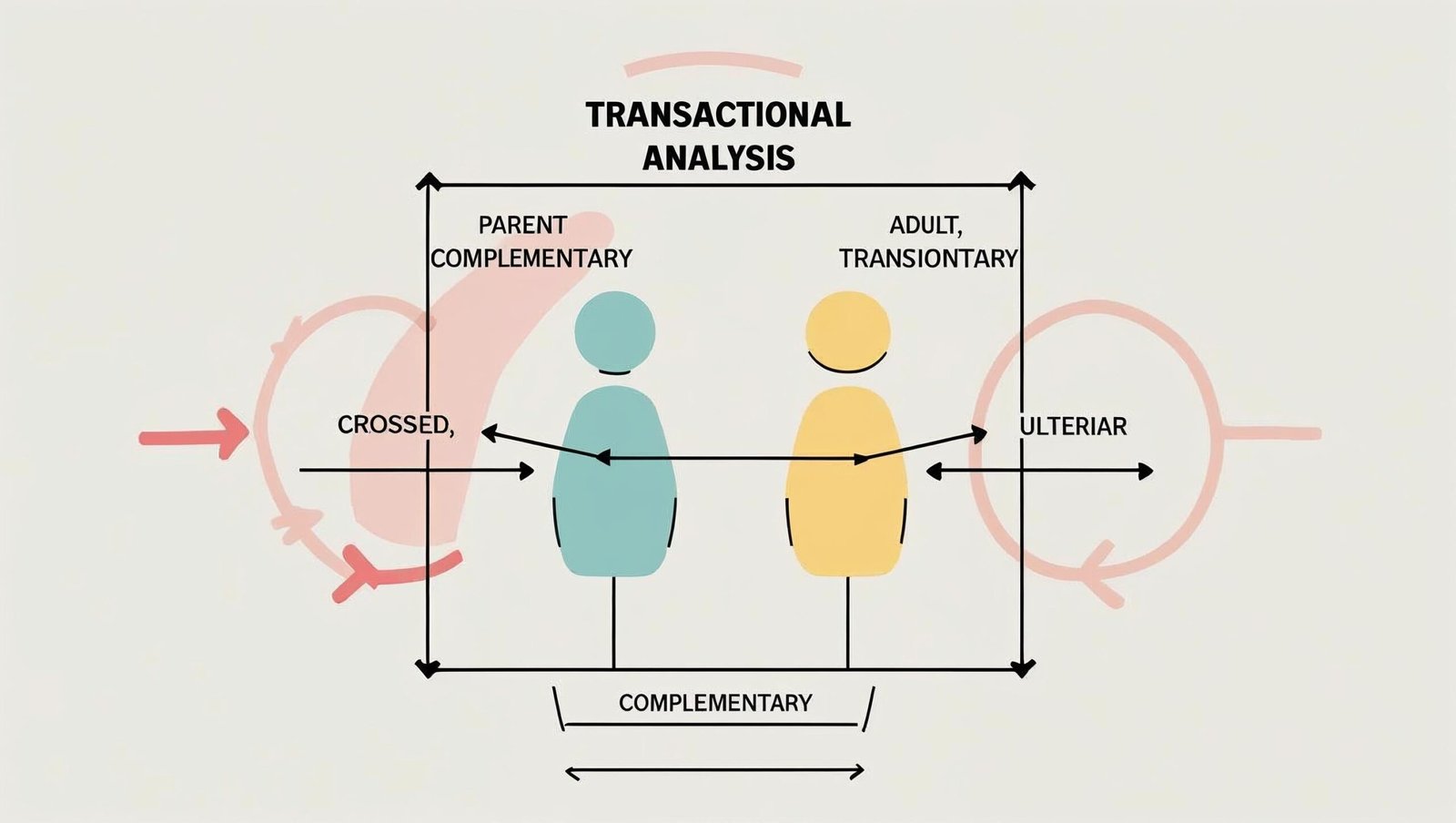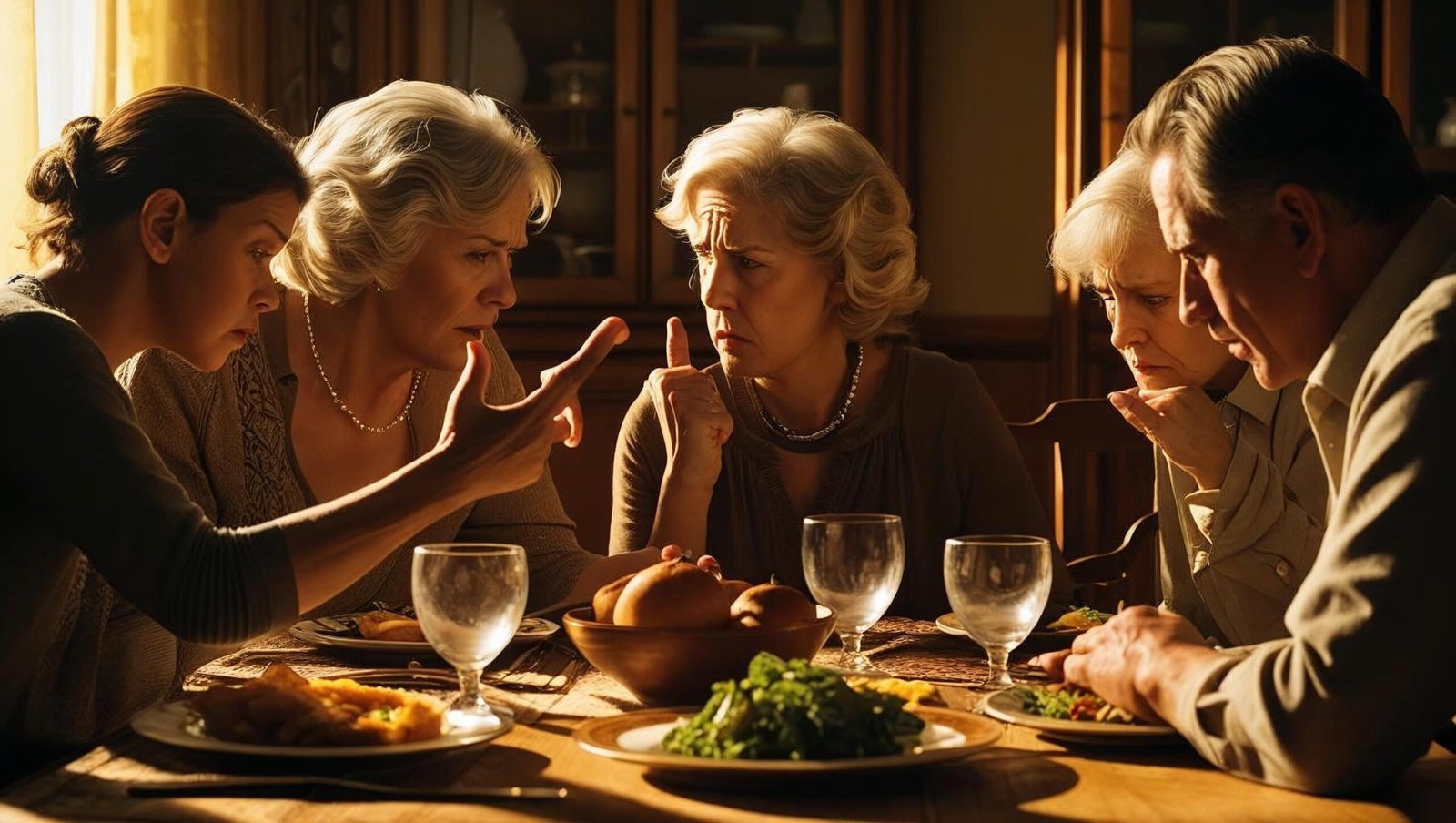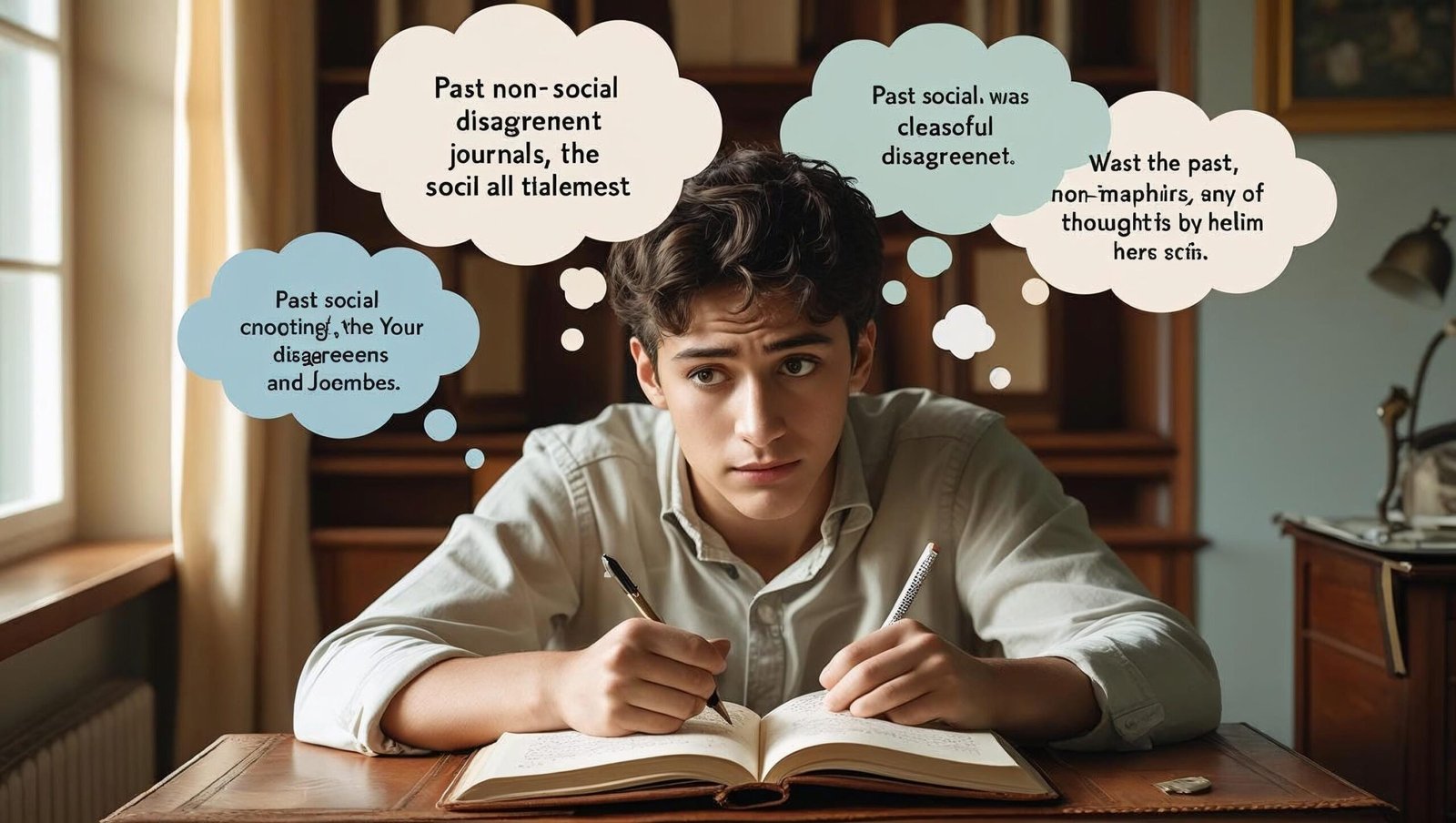Introduction
Eric Berne’s Games People Play is a groundbreaking psychological classic that continues to illuminate the intricacies of human behavior decades after its publication in 1964. Berne, a Canadian-born psychiatrist, introduced the concept of transactional analysis to decode the structured ways in which people engage with one another. In this extensive review of games people play, we shall examine eleven transformative lessons that can radically improve the quality of your interpersonal relationships.
Berne’s premise is simple yet profound: most of our interactions are not spontaneous but are instead unconscious “games” that fulfill hidden emotional needs. As we explore these concepts, you’ll begin to recognize the very patterns that subtly govern your daily conversations, social habits, conflicts, and emotional responses.
This article is a complete exploration of games people play, examining its psychological foundations, common game types, and offering actionable insights for reshaping your relationships. Let us begin with the essential foundation—Transactional Analysis.

1. Mastering Transactional Analysis
At the core of games people play is Berne’s model of human interaction called Transactional Analysis (TA). TA breaks down communication into three ego states: Parent, Adult, and Child.
- Parent: Reflects taught concepts—morals, authority, social norms.
- Adult: Processes data objectively, present-focused, rational.
- Child: Represents felt concepts—emotions, creativity, rebellion.
Every transaction in communication, Berne argues, occurs between these ego states. Problems arise when people operate out of conflicting ego states or when subconscious motives influence conscious communication. TA provides the structural lens to analyze and change this.
For instance, in an argument between a couple, one may take on the Parent role (critical), while the other may respond from the Child ego (defensive or rebellious). Recognizing and realigning these roles toward Adult-to-Adult interaction can de-escalate conflicts and foster mutual understanding.
Through TA, games people play empowers us to recognize not only what is said but from which psychological state it is being said.
2. Decoding Social Games
In the book, Berne identifies numerous social games, which are repetitive, predictable interaction patterns with concealed motives. The following are some of the most influential examples:
- “Why Don’t You – Yes But” – A classic game where someone seeks advice only to reject every suggestion, unconsciously reinforcing their belief that no solution exists.
- “If It Weren’t for You” – Used to avoid accountability, this game blames others for personal inaction or dissatisfaction.
- “Now I’ve Got You, You Son of a Bitch” – A trap game where one waits to catch another’s mistake and pounce with moral or emotional indignation.
- “Let’s You and Him Fight” – Initiating conflict between two parties while avoiding personal involvement.
- “Kick Me” – Subtle self-sabotage seeking punishment or rejection to affirm an internal narrative of unworthiness.
- “See What You Made Me Do” – Shifting blame for one’s errors onto another person’s influence.
- “Harried” – Playing the martyr by taking on too much and resenting others for it.
- “Sweetheart” – Feigned vulnerability or charm used manipulatively.
- “Wooden Leg” – Using a real or imagined handicap to avoid effort or responsibility.
- “Courtroom” – Provoking judgmental arguments, often triangulating a third party.
- “Blemish” – Focused on finding others’ faults to deflect from one’s own insecurities.
Each of these games provides an emotional payoff—reinforcing victimhood, superiority, guilt, or other subconscious states. Identifying these patterns is the first step to breaking free.
3. Why People Play Games: Emotional Payoffs
The emotional payoff is central to why games people play occur in the first place. According to Berne, games serve a psychological function beyond the surface interaction. These can include:
- Validation of beliefs (“Everyone abandons me”)
- Avoidance of intimacy
- Seeking attention or sympathy
- Asserting power or dominance
- Dodging responsibility
For instance, someone who repeatedly plays the “Kick Me” game may unconsciously orchestrate scenarios in which they are rejected, fulfilling their deep-seated belief that they are undeserving of love. Understanding these emotional rewards helps one address the root cause of dysfunctional behavior.
Berne’s insight from games people play is not just about the game, but about the story people are telling themselves underneath it.
4. Breaking the Cycle: Adult Ego Empowerment
How does one stop playing these games? The answer lies in developing the Adult ego state.
The Adult is logical, present, and non-reactive. Cultivating this state allows individuals to:
- Observe their patterns
- Pause before reacting
- Respond with clarity and compassion
- Set healthy boundaries
Berne encourages conscious reprogramming of interactions. For instance, instead of participating in a “Courtroom” game, one can respond, “I hear your point. Let’s talk about solutions instead of blame.”
In this way, games people play becomes a manual for personal transformation, shifting from unconscious scripts to conscious agency.
5. Applications in Everyday Life
The principles of games people play are visible everywhere:
- Relationships – Emotional manipulation, blame cycles, intimacy avoidance.
- Workplace – Power struggles, passive-aggressiveness, triangulation.
- Parenting – Control games, enabling behavior, guilt-tripping.
- Friendships – Jealousy, competition, one-upmanship.
When recognized, these patterns can be restructured toward honest, Adult-based communication. Teams can become more collaborative, relationships more empathetic, and families more supportive.
Berne’s work enables individuals to build not just better conversations, but better emotional lives.

6. Critiques of Berne’s Theory
While influential, games people play has also faced criticisms:
- Gender bias in examples
- Lack of empirical data
- Culturally dated language
- Oversimplified categorization of behavior
Nonetheless, the psychological framework remains robust when adapted to modern awareness. Many contemporary therapists have built upon Berne’s model to include trauma theory, systemic family dynamics, and cultural variations.
The key lies in using Berne’s language as a scaffold rather than a doctrine.
7. Who Should Read Games People Play
This book is for anyone interested in:
- Understanding human psychology
- Improving communication
- Breaking toxic patterns
- Navigating relationships more consciously
- Increasing emotional intelligence
Whether you’re a psychotherapist, a teacher, a parent, or someone curious about their inner world, games people play offers both language and logic to explore your psyche.
8. Real-Life Examples of Game Disruption
Let’s examine how individuals have successfully broken out of social games using Adult ego awareness:
- Workplace Shift: A manager continually played “Now I’ve Got You” by waiting to catch mistakes. After feedback and reflection, they adopted an Adult approach—coaching employees and building a trustful team environment.
- Family Transformation: A mother who played “Martyr” realized she was enabling dependency. She started setting boundaries and encouraging autonomy among her children.
- Relationship Growth: A partner who often used “If It Weren’t for You” in arguments recognized their avoidance of accountability. They began acknowledging their own choices and the relationship blossomed in authenticity.
9. Integrating TA into Daily Reflection
Self-reflection is key to transformation. Here’s a daily reflection tool inspired by games people play:
- What role did I play today—Parent, Adult, or Child?
- Did I initiate or respond to any games?
- What was the emotional payoff I unconsciously sought?
- How could I have responded more as an Adult?
Over time, this practice builds deeper self-awareness and greater emotional agility.
10. Berne’s Legacy in Modern Psychology
Berne’s transactional analysis has influenced numerous domains:
- Counseling & Therapy: TA remains a structured approach in many therapeutic settings.
- Education: Teachers trained in TA create more conscious communication environments.
- Corporate Training: Leadership programs use Berne’s model to foster empathy and better teamwork.
His work laid the groundwork for understanding not just the behavior, but the motives and narratives that underlie human interaction.

11. Closing Reflections
Understanding the games people play is not just academic—it’s profoundly personal. Each time we choose awareness over autopilot, compassion over confrontation, Adult over Child, we rewrite the script.
You have the power to stop playing games.
In a world rife with miscommunication and psychological projection, Berne’s work offers clarity. In our digital age—text messages, social media, remote work—his insights are more relevant than ever.
Read this book not once, but several times. Each reading uncovers another layer of truth about yourself and others.
12. Games People Play in Romantic Relationships
Romantic relationships are fertile ground for psychological games because they combine intimacy with vulnerability. Partners often engage in games as a subconscious defense against emotional exposure. Recognizing these games is essential for fostering authentic connection.
One of the most common is “Frigid Woman”, where a partner avoids physical or emotional intimacy by blaming the other’s behavior, subtly punishing them. Another is “Rapo”, where flirtation is used to manipulate or shame, rather than express genuine affection.
Berne emphasized that these games are not malicious by design but are often learned behaviors to avoid rejection, abandonment, or emotional risk. Couples locked in such patterns often experience recurring conflicts that seem unsolvable—until they shift to Adult-based interaction.
Practical steps to dismantle these games include:
-
Practicing open communication without judgment.
-
Identifying emotional triggers and the ego state behind the reaction.
-
Asking questions like: “Am I responding as the Adult, or am I reverting to the Child?”
-
Naming the pattern gently with mutual agreement to stop playing.
True intimacy, Berne would argue, can only begin when both partners meet each other Adult to Adult—without manipulation, without defense.
13. The Role of Childhood in Game Development
Many of the games people play are deeply rooted in early childhood experiences. Berne suggested that our “life scripts”—the stories we live out—are formed before the age of seven. These scripts often include implicit beliefs about love, success, worthiness, and power.
For example, a child who grows up hearing, “You’ll never be good enough,” may unconsciously engage in games that perpetuate failure or seek constant approval. A child who had to be “the helper” in a dysfunctional family might gravitate toward the martyr game in adulthood.
Understanding the origins of these games is crucial for healing. When adults realize their present behavior is a replay of childhood roles, they can begin to rewrite the script.
Questions for reflection include:
-
What role did I play in my family of origin?
-
How does that role show up in my current relationships?
-
Which games feel familiar, even if destructive?
By linking adult games to childhood patterns, Berne provided not only awareness but also a pathway to personal liberation.

14. Games People Play in Social Media and Digital Spaces
While Berne wrote in the pre-internet era, his insights are strikingly relevant to modern digital behavior. Social media platforms have become a breeding ground for new iterations of the games people play.
Examples include:
-
“Victimhood Posting” – Publicly sharing grievances to elicit sympathy and attention while rejecting solutions, a version of “Why Don’t You – Yes But.”
-
“Cancel Game” – Calling out others to assert moral superiority, resembling “Now I’ve Got You.”
-
“Highlight Reel” – Curating perfect lives online, subtly provoking envy or validation-seeking—an evolved form of the “Sweetheart” or “Blemish” game.
-
“Troll Baiting” – Posting controversial opinions not for dialogue but to incite outrage and conflict—akin to “Courtroom.”
The digital medium amplifies these games because feedback is instantaneous and public. Likes, shares, and comments can reinforce emotional payoffs at scale.
The antidote, once again, lies in conscious awareness. Before posting or reacting, ask:
-
Which ego state am I operating from?
-
What emotional payoff am I seeking?
-
Is this an Adult communication or a Child impulse?
By bringing Berne’s framework into digital spaces, we can foster more authentic and less reactive online cultures.
15. From Game Player to Game Breaker: A Personal Journey
The journey from compulsively playing games to living authentically is deeply personal and often nonlinear. It begins with discomfort—recognizing that one’s patterns are sabotaging happiness. It matures through awareness and effort, culminating in transformation.
Consider someone who plays “Kick Me” repeatedly. They complain about mistreatment, provoke criticism, and then retreat into victimhood. Through therapy or self-reflection inspired by Berne’s book, they realize their behavior invites the very pain they dread.
This insight creates a moment of choice: continue the familiar pattern or try a new response. At first, the Adult ego feels foreign. The temptation to fall back into old games remains strong. But with each Adult response—setting a boundary, speaking honestly, walking away—the new identity strengthens.
Over time, these new interactions become the norm. Life feels freer, lighter. Relationships deepen. Self-worth grows.
This is the transformation games people play promises—not just understanding others but reclaiming yourself.
16. Group Dynamics and Organizational Games
In organizational settings, games often become part of the culture, reinforcing dysfunctional dynamics. Managers may play “Now I’ve Got You,” HR may enable “Let’s You and Him Fight,” and employees may indulge in “Kick Me” or “Harried” to gain sympathy or avoid responsibility.
Berne believed that organizations, like individuals, have scripts. These scripts are formed by leadership styles, reward systems, and communication norms.
Breaking these games in a professional environment requires:
-
Transparent feedback systems.
-
Training in Transactional Analysis for managers and teams.
-
Clear boundaries and role clarity.
-
Promoting Adult-to-Adult communication.
A healthy workplace, according to Berne’s principles, encourages responsibility without blame, collaboration without manipulation, and assertiveness without aggression.
Companies that implement these principles often experience:
-
Improved morale
-
Greater team cohesion
-
Increased innovation
-
Reduced burnout and conflict
Berne’s insights can truly revolutionize not just individual behavior, but organizational culture.
17. Final Thoughts: Life Beyond Games
As we reach the end of this deep exploration, consider what Berne ultimately invites us to do: Wake up. Become aware. Reclaim your choices. Stop playing games.
Life beyond the games people play is not sterile or dull. It is alive. It is messy, but it is real.
You’ll still feel fear, anger, sadness—but you won’t weaponize them.
You’ll still encounter people who play games—but you’ll know not to join.
You’ll still face conflict—but you’ll navigate it with clarity and compassion.
Berne’s message is both psychological and spiritual: Let go of scripts that no longer serve you. Live in the Adult. Communicate with presence. Love with intention.
Because in the end, the only winning move is not to play.

FAQs
Q1: What are the ‘games’ in Games People Play?
They are unconscious behavioral patterns that people use in interactions to fulfill emotional needs or avoid responsibility.
Q2: Is this book still relevant today?
Yes. The core insights about ego states and emotional scripting remain foundational in modern psychology.
Q3: Can I use this book for self-help?
Absolutely. While clinical in parts, it’s written for a broad audience and offers transformative awareness.
Q4: How long is the book?
Roughly 270 pages. It’s a compact but deep read.
Q5: Is this book appropriate for beginners in psychology?
Yes. It’s accessible, yet layered with depth for multiple readings.
Conclusion
Eric Berne’s games people play is not merely a psychological text—it’s a mirror to our conditioned selves. By recognizing the scripts we repeat and the roles we unconsciously assume, we empower ourselves to break free.
This review has explored eleven brilliant lessons that can revolutionize your understanding of human behavior. As you reflect on the concepts of Transactional Analysis, emotional payoffs, and Adult ego development, ask yourself: “Which game am I playing—and am I ready to stop?”
Start with awareness. Proceed with compassion. And always respond as the Adult.
Author’s Note
I’m Shubhanshu from shubhanshuinsights.com. If this deep dive into games people play resonated with you, drop your thoughts in the comments below. Let’s learn, unlearn, and grow together.
Comments Section
Have you identified any social games in your own life after reading this? Share your reflections on how games people play shaped your thinking.
Which chapter of games people play resonated most with your relationships?
Your insights on games people play could inspire others to break free from unconscious patterns—let’s start the conversation!